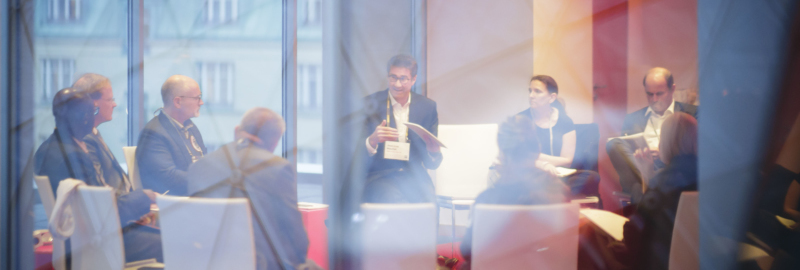Falling Walls Circle Table: Understanding the Scientific Method in the 21st Century
Against the background of the Covid-19 pandemic, which proves to provide fertile ground to intensify the ‘information disorder’ characterised by conspiracy theories and ‘alternative facts’, it is vital to underline the relevance of science and the value of the scientific method that lies at its core and has been developed over centuries. This is a moment for scientists to come forward and defend a culture in which evidence is based on proven facts and new knowledge pursued through constant questioning and a critical mind-set – as very adequately described by the late French astronomer André BRAHIC: “To understand the scientific method, one has to realize that progress comes from a continuous process of calling into question. A proposition is only scientific if it is falsifiable, in other words if anyone can verify it or invalidate it.” This is why “the history of scientific ideas is an excellent school of doubt, humility, rigour, honesty and the critical spirit, which are prime virtues in the service of a passion for knowledge.” At the same time, the scientific method is also confronted to new challenges, such as the demand for more public participation in scientific research, or new approaches related to the collection, maintenance, sharing and exploitation of an exponentially growing amount of data. It is in this spirit and based on those values that the European Research Council operates, offering scientists the trust, freedom, and long-term support needed to pursue their scientific creativity and curiosity, their most ambitious scientific ideas, for the benefit of all – for science is a public good that ultimately benefits every one of us. The session will feature three distinguished scientists holding an ERC grant, who will approach the topic of this session from the perspective of their respective scientific field and ERC research project: Prof. Edith HEARD, a pioneer in epigenetics and developmental biology, explores the role of chromosome architecture in gene regulation and its impact for development and disease. Prof. Fosca GIANNOTTI, who specialises in social mining from big data, studies how to design transparency in machine learning models and develops ethical and legal standards for AI. Prof. Sabina LEONELLI, a philosopher of science, established a new framework to think about the role of big data in modern science, offering concrete solutions for the pressing issues created by their more and more extensive use. The session will be moderated by Prof. Jean-Pierre BOURGUIGNON, ERC President ad interim. DIGITAL BROADCAST AND FREE FOR EVERYONE This is a digital event. Shortly before the event starts, the stream will be made available on this site. Add the event to your schedule and receive a reminder.

